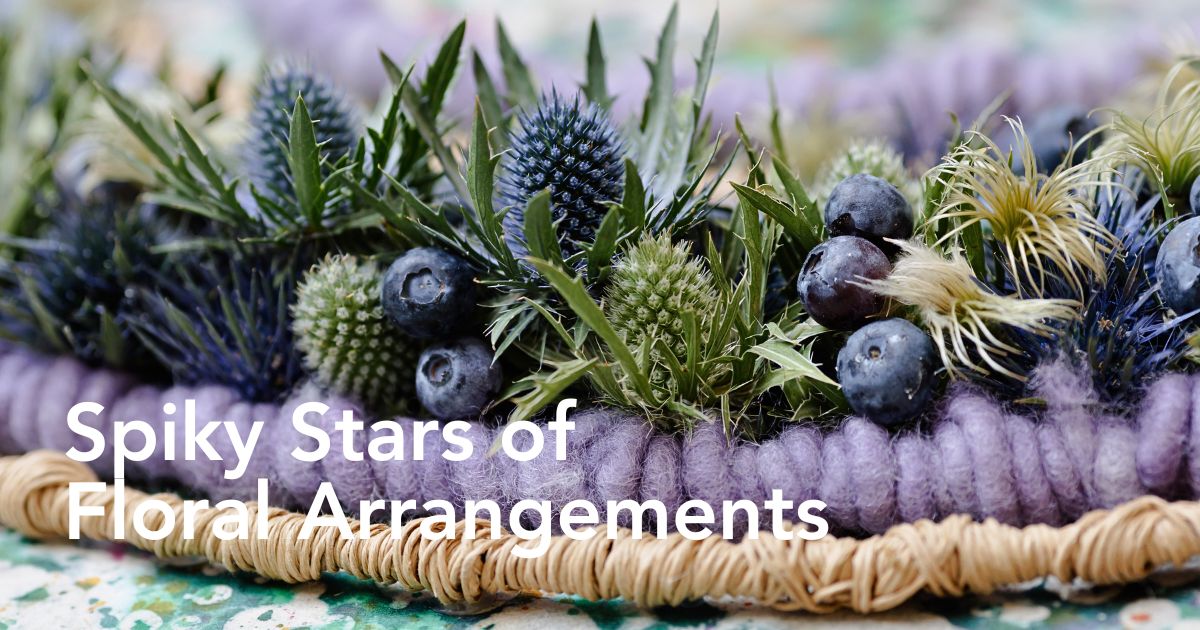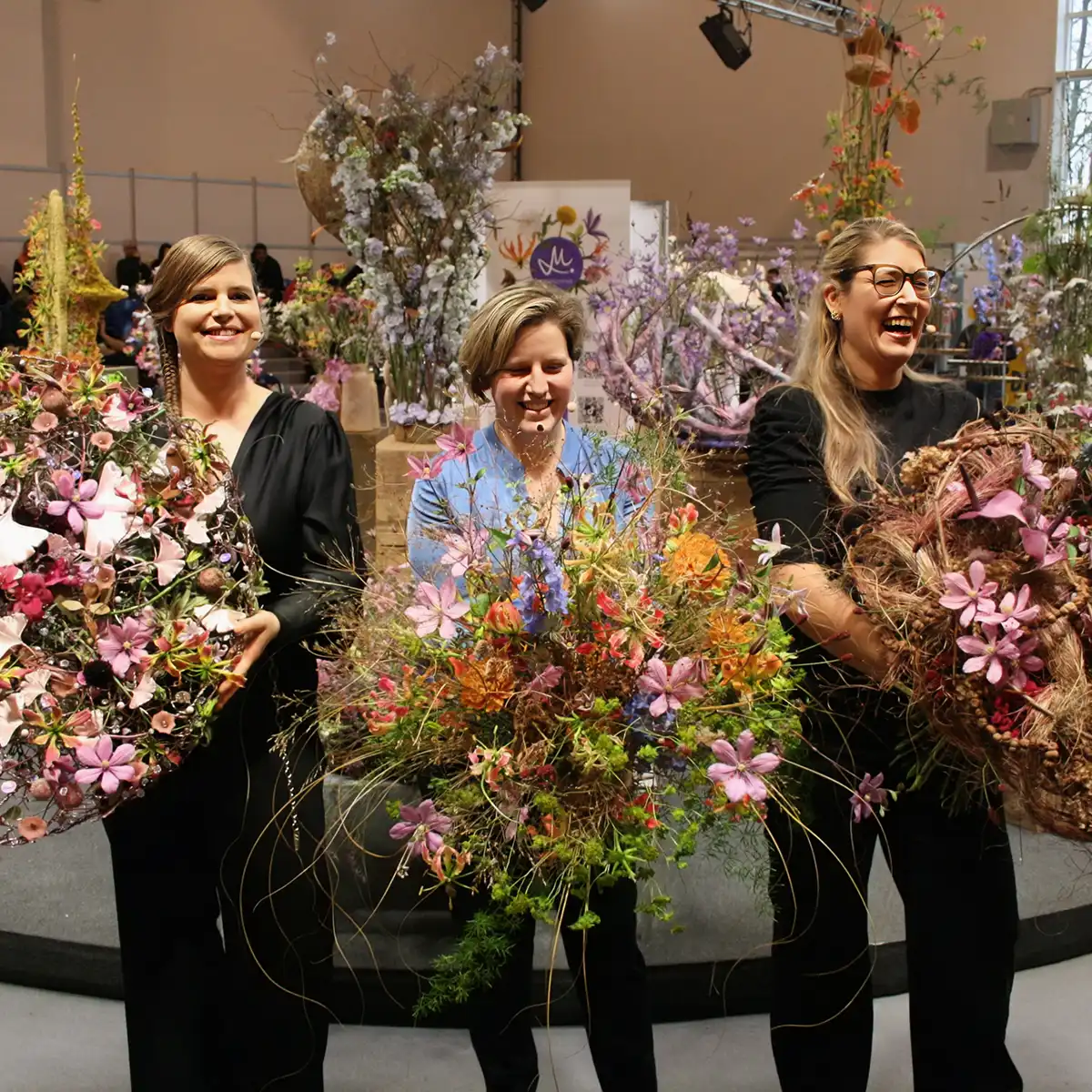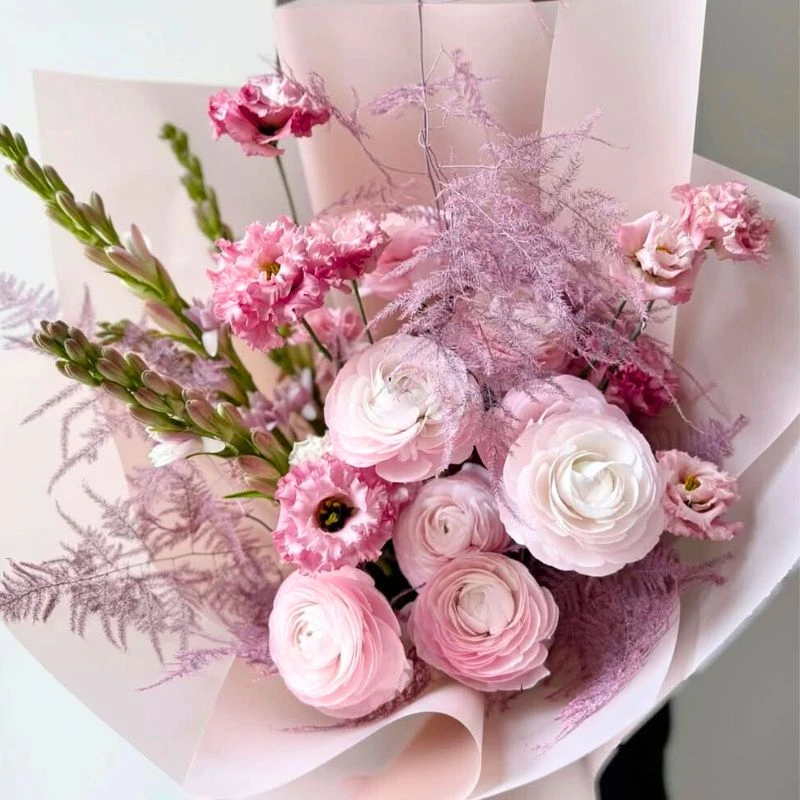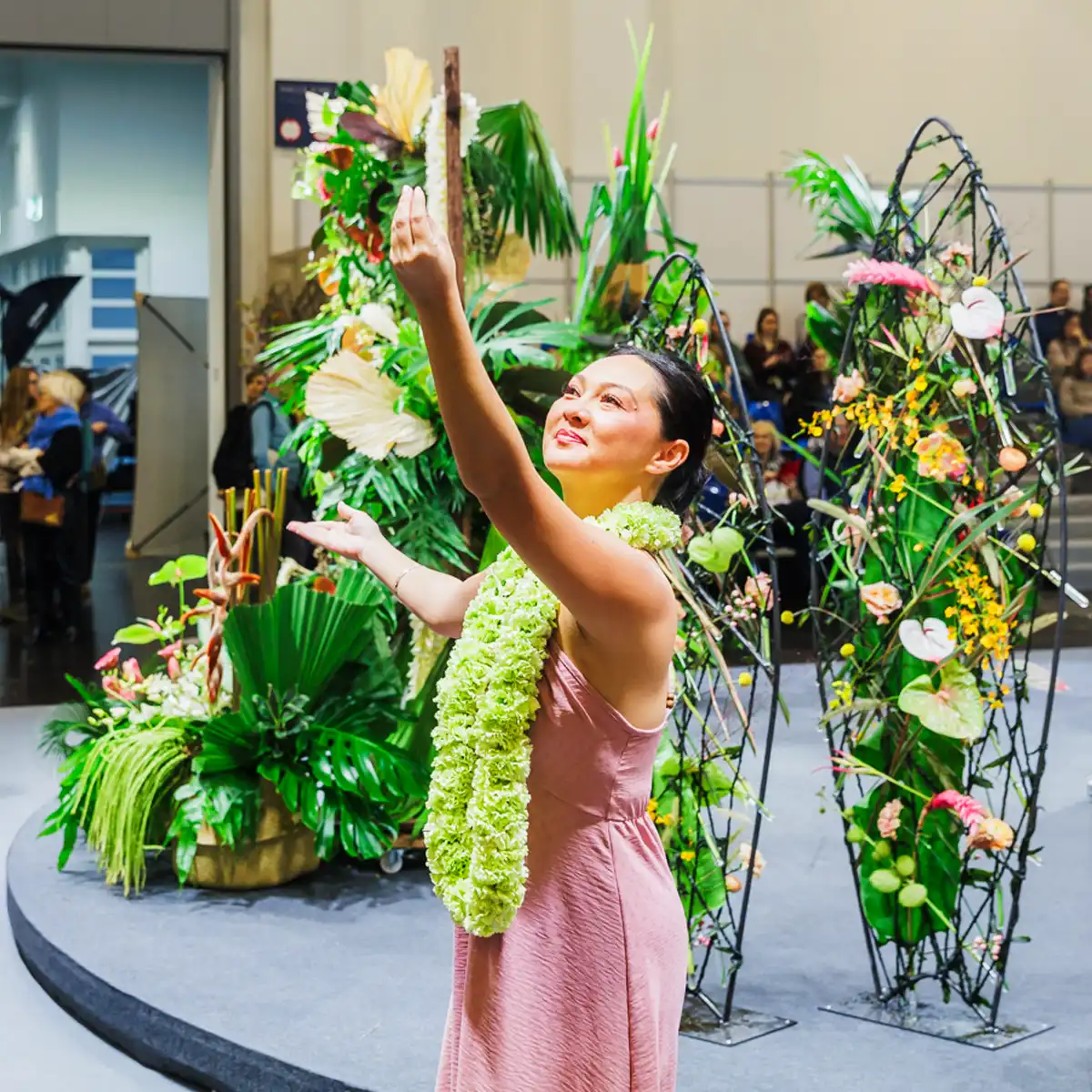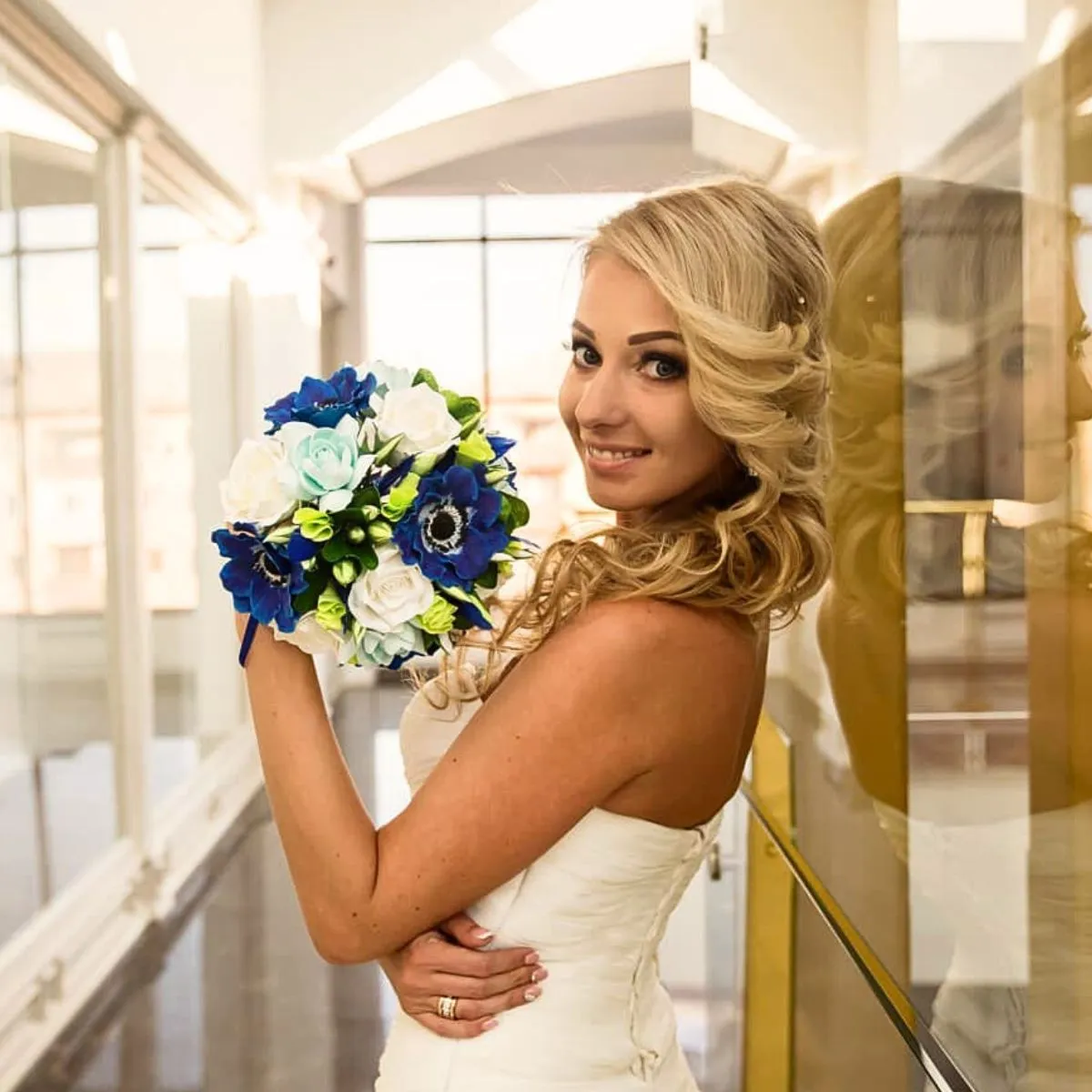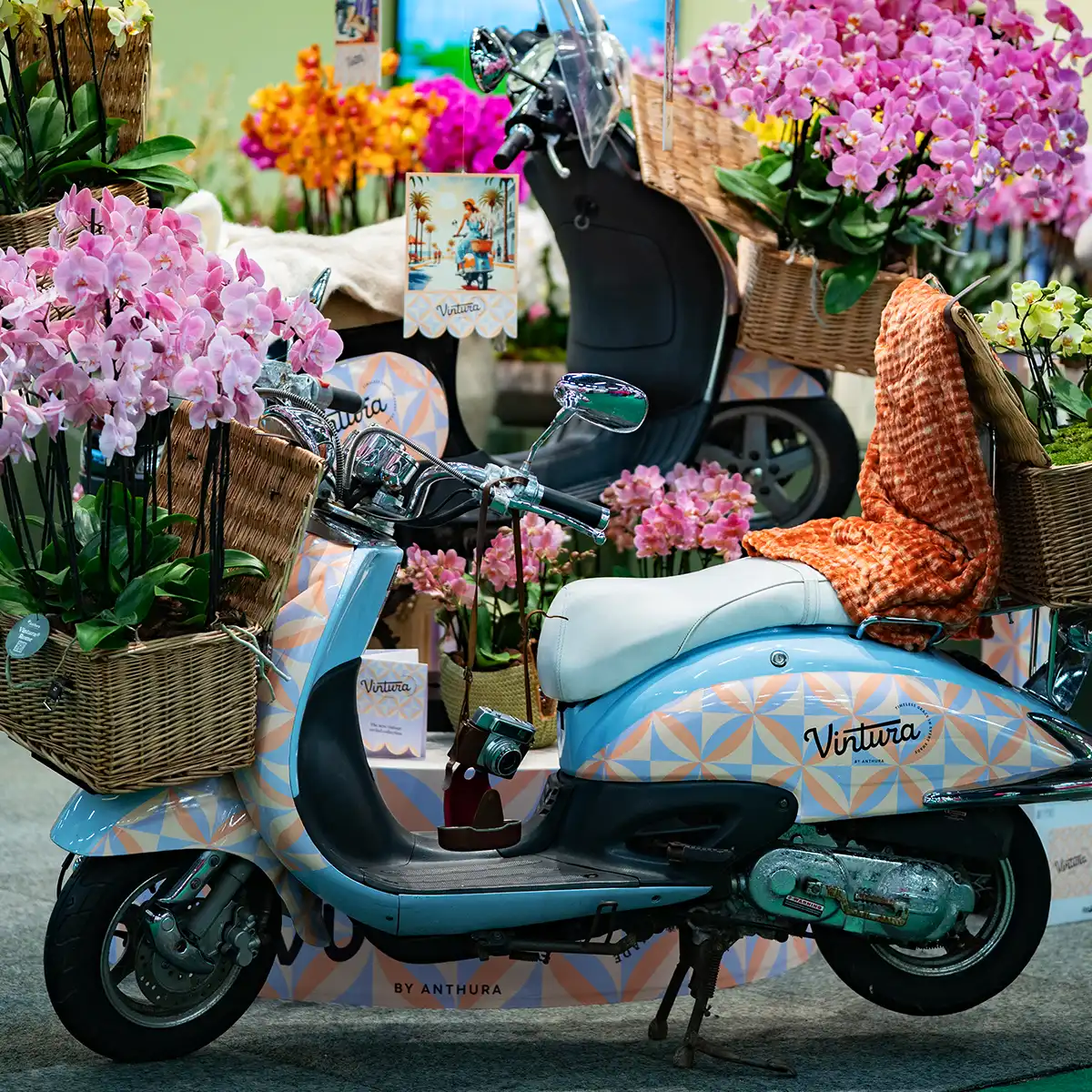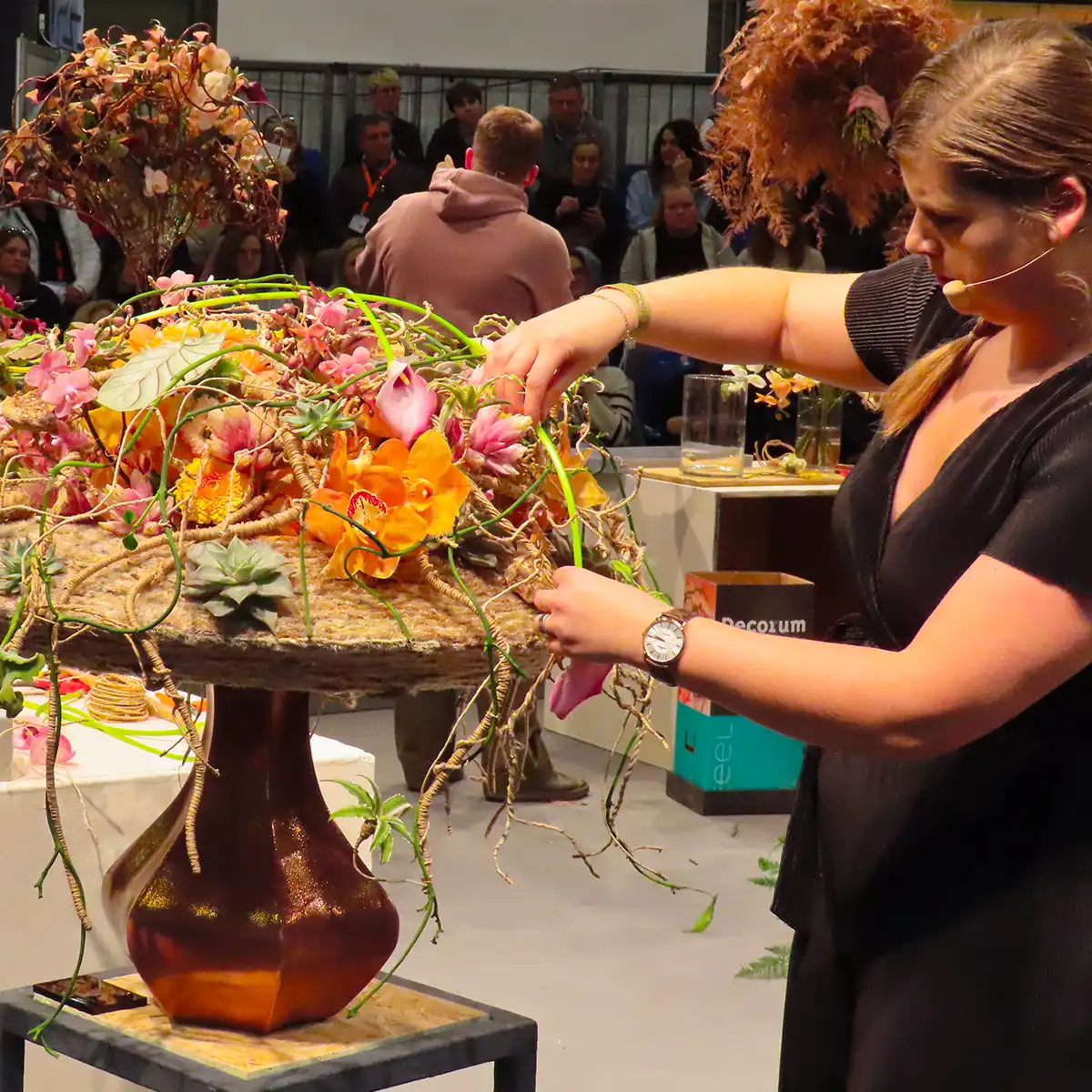Marginpar's latest Eryngium Questar® additions – Eryngium Scorpius Questar® and Eryngium Gemini Questar® – are stars that bring drama to floral design. When Hungarian florist Krisztián Kövér got to work with these spiky beauties, he showcased all that this flower can achieve design-wise. His work with a flower, that gives extra character to bouquets and arrangements, resulted in a series of designs that tell tales through texture, structure, and creativity.
Marginpar's Latest Constellation Stars
Eryngium Scorpius Questar®, a big, spiky thistle, is quite the scorpion of the flower world, complete with a ‘burning sting’ of bright blue that commands attention. This variety lives up to its namesake’s attributes as one of the brightest performers in an arrangement.
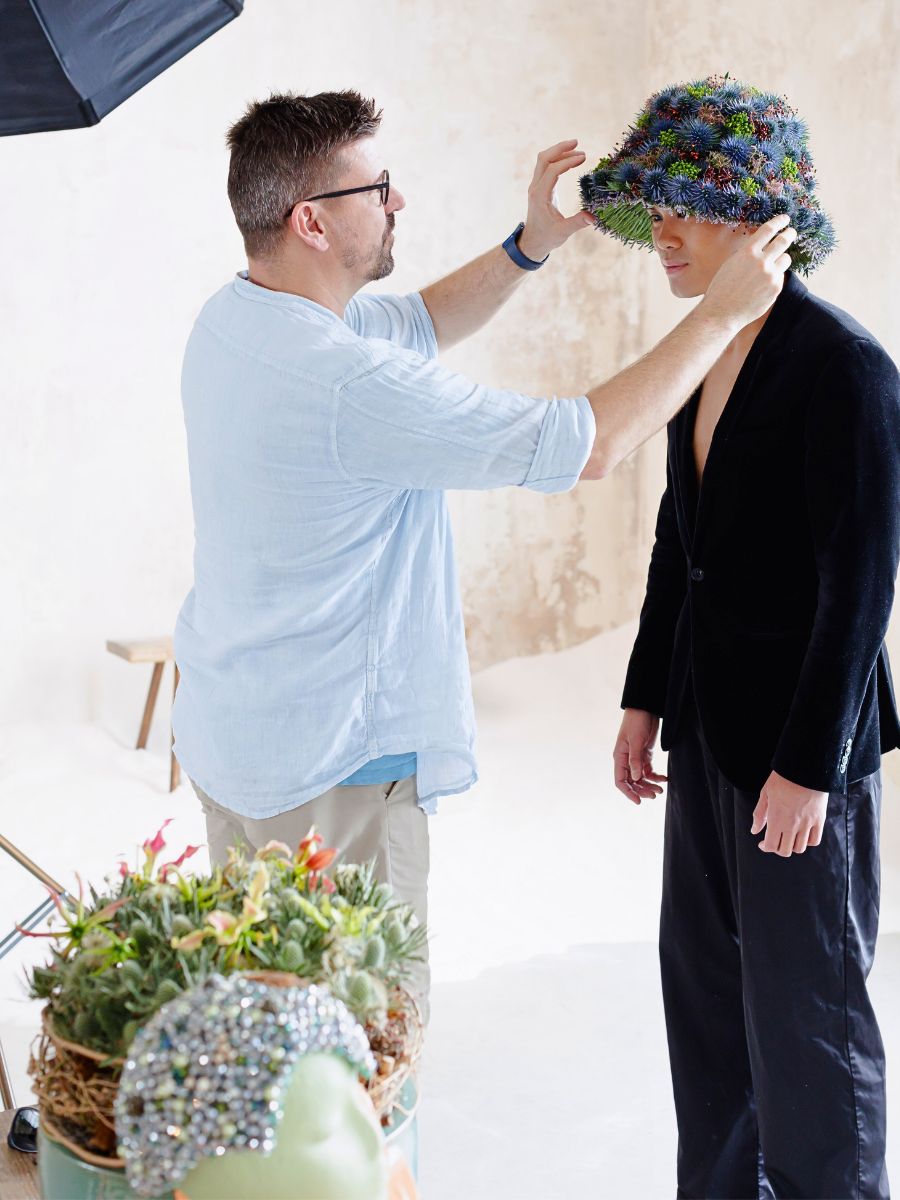
Eryngium Gemini Questar®, on the other hand, has white flower heads that thrive in Kenyan temperatures – where it is grown. Its strong stems and distinctive architectural presence make it an excellent choice for both fresh and dried arrangements, where it adds structure and a natural aesthetic. Both varieties offer florists reliable year-round availability under Marginpar's sustainable cultivation practices.
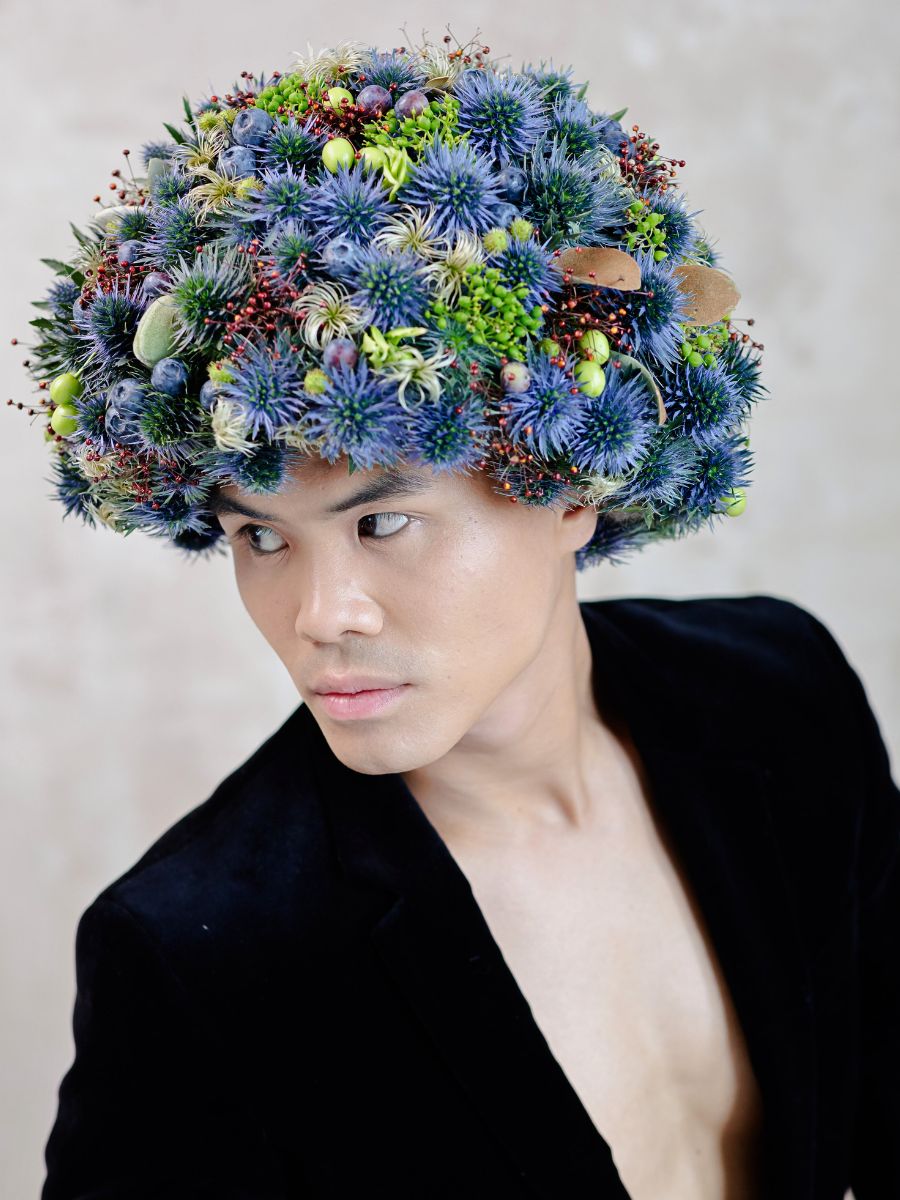
Designing Floral Headpieces With Eryngium Questar®
When Krisztián sought to explore these varieties of the Eryngium Questar® series, he approached it as a way to tell stories through botanical form. He began with floral headpieces that seemed to merge classical headwear and contemporary body art.
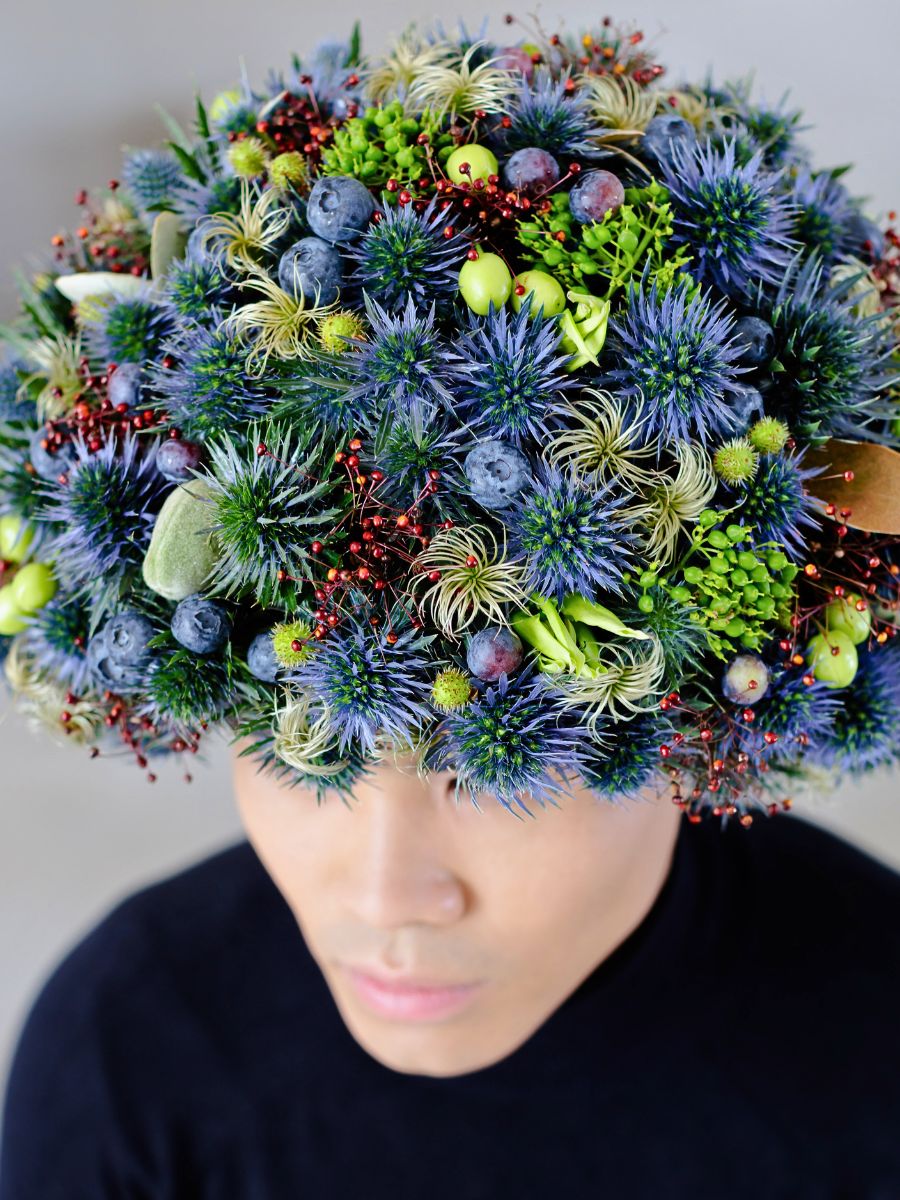
These floral headpieces are sculptural in their construction yet wearable in nature, one design resembles a voluminous crown, while the other evokes the shape of a wide, soft-brimmed hat, both made primarily from Eryngium Scorpius Questar®, small berries, seed pods, and fresh greens, creating a surface quite like textile.
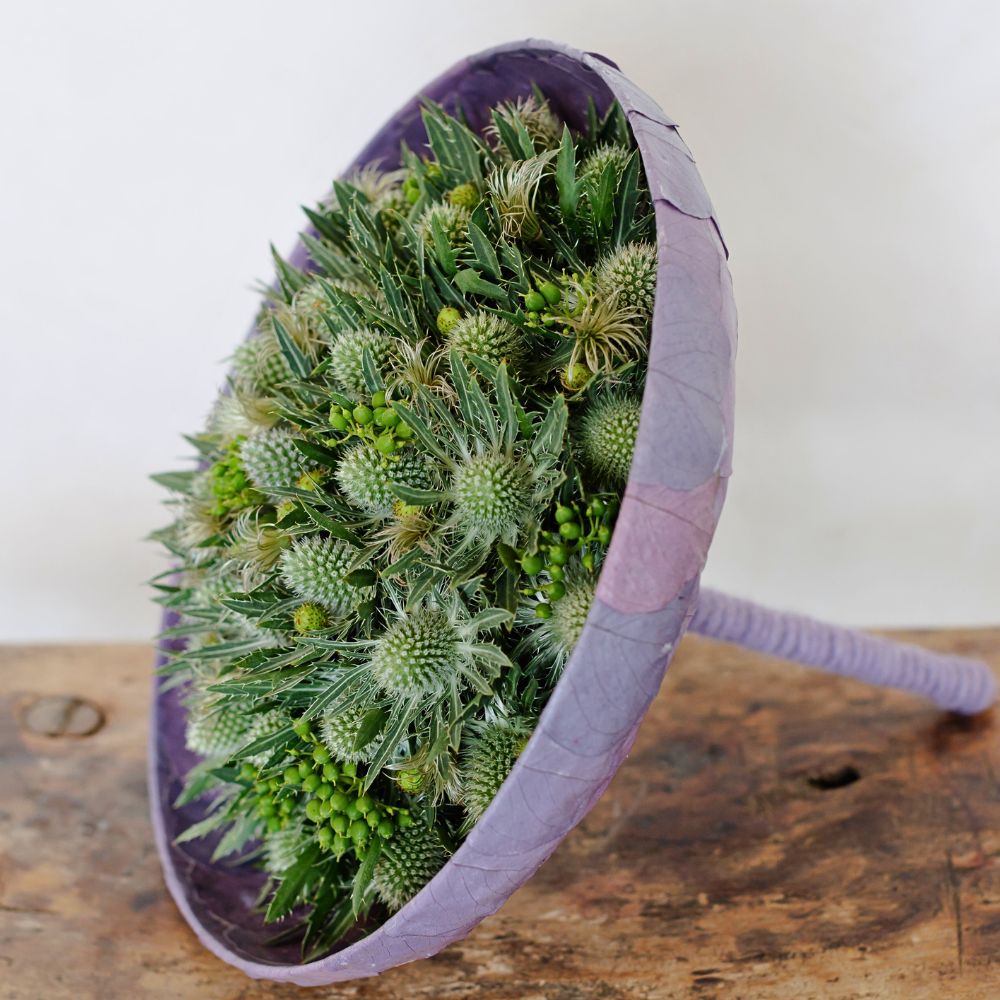
Their color palette—dusty, deep, rich—shifts gradually like hand-painted silk. They have an Eastern influence at play, as well; a ceremonial symmetry, respect for detail, a subtle invite to observe rather than a demand for attention. Built on lightweight bases using cold glue techniques, these headpieces balance the curve that hugs the head with an expanded outer edge.
More Ways, More Design Ideas
Krisztián also produced several additional designs with Eryngiums as the main stars, each exploring different aspects of form, rhythm, and layering.
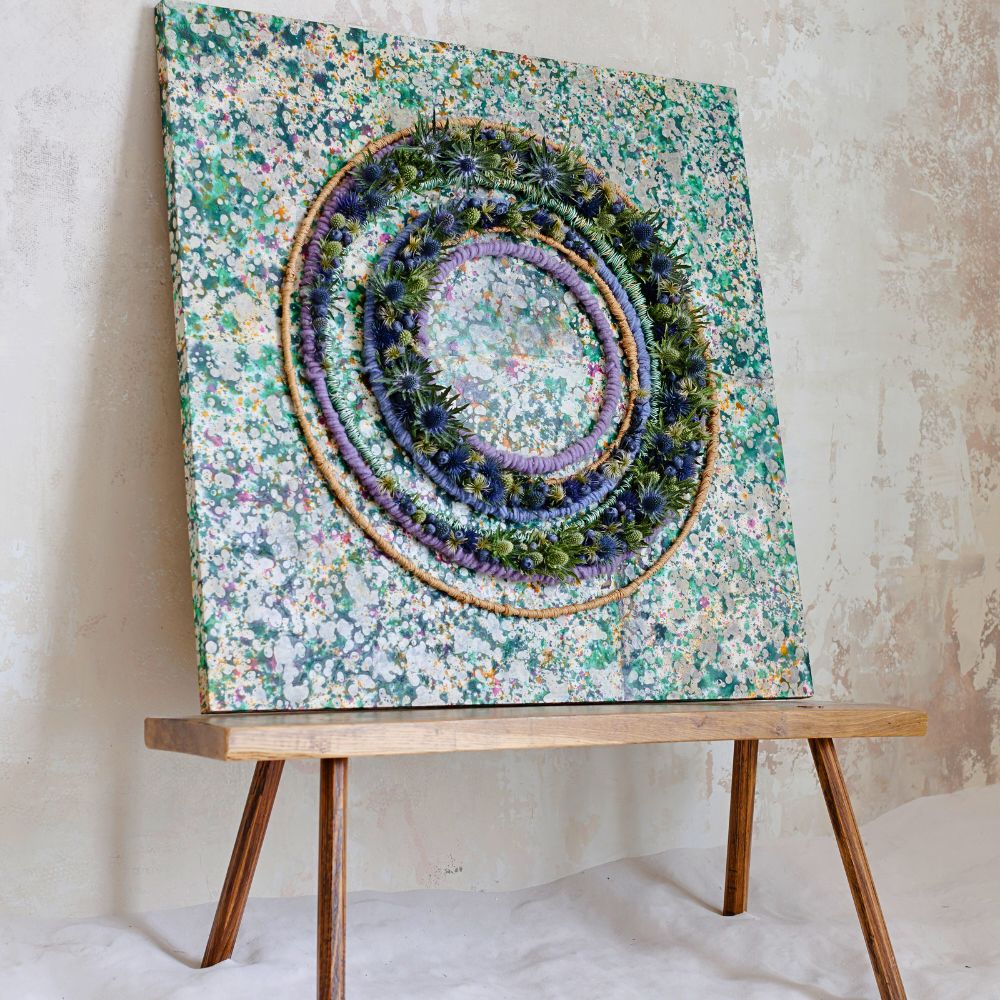
Floral Relief: Built on a wooden board with dyed paper background, this circular composition layers wool cord, wire, Clematis Amazing® Kibo, blueberries, and thistle varieties, including Eryngium Sirius Questar®, Eryngium Orion Questar®, Eryngium Magnetar Questar®, and the recently launched Eryngium Scorpius Questar®.
To start, Krisztián layered thick wool cord, paper-covered wires, and colored wool. Between the floral zones, he used twisted wire, berries, and Eryngium heads, creating a structure that feels sculptural and softened by the arcs. He worked from outer ring to the center, flower heads attached with cold adhesive.
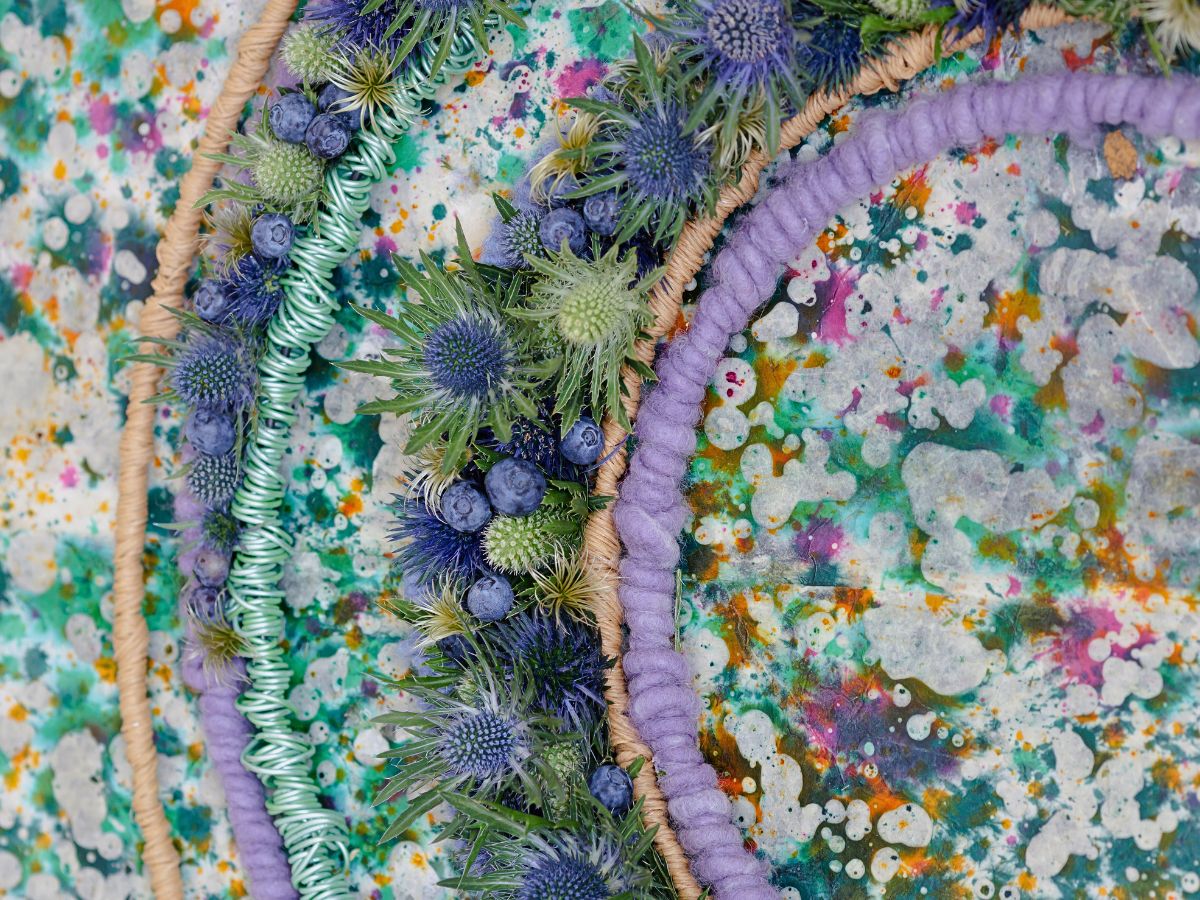
Repetitive Structures: Here, four identical black bowls filled with Eryngium Supernova Questar® and Euphorbia showed repetition and rhythm. Slight variations in berry placement and directional tilts create dynamic effects perfect for spatial dividers or table decorations. The materials are arranged in water-soaked floral foam, allowing the design concept to shine.
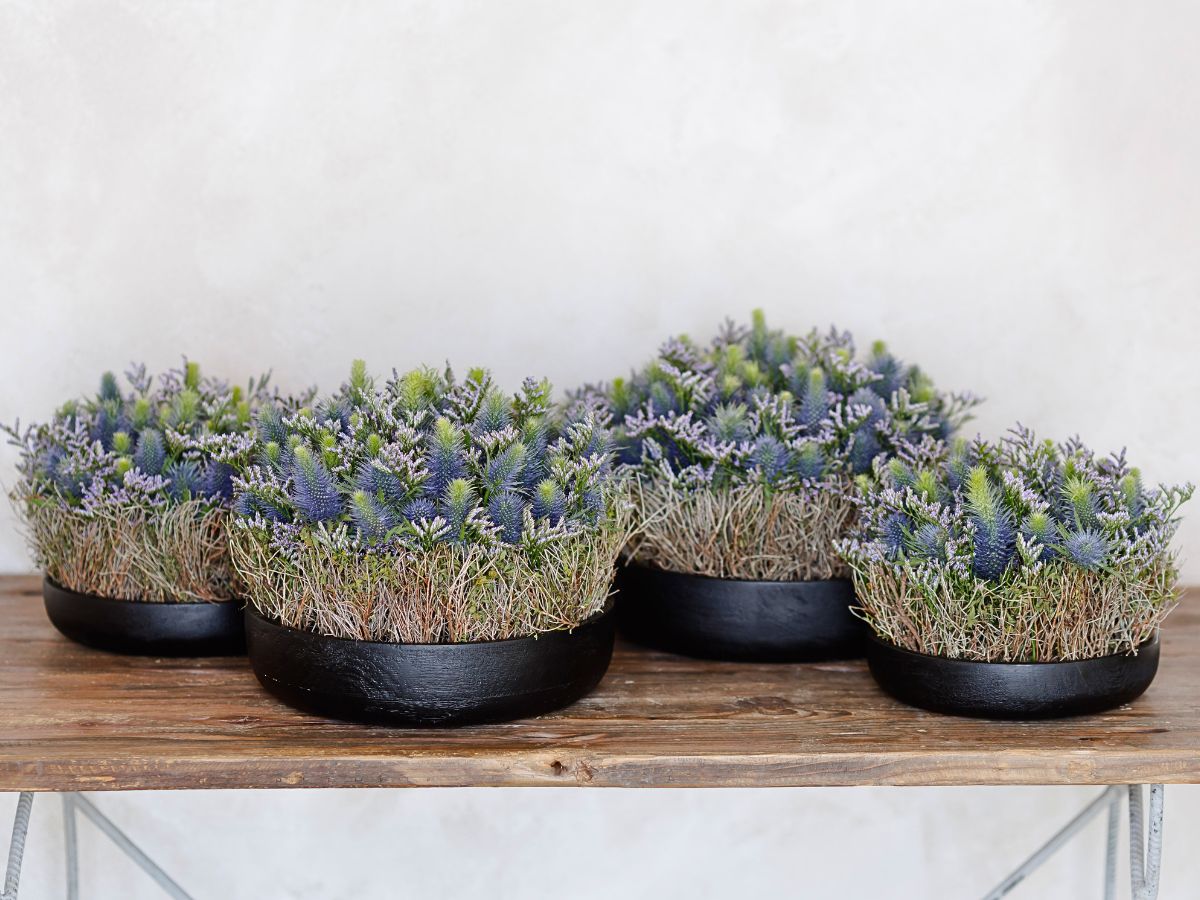
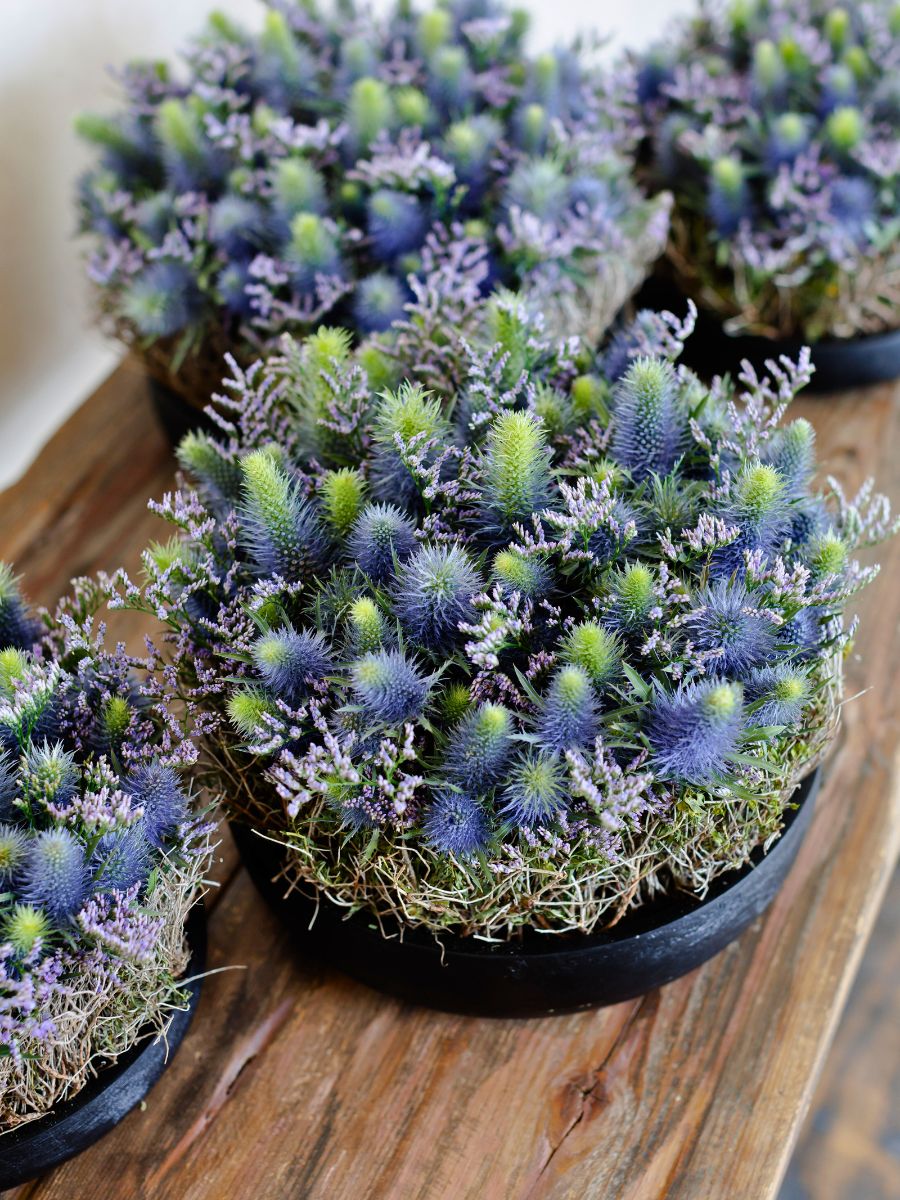
Paper Straw Planters: In this design, natural coverings like raffia and straw soften the visual edges of containers, shifting focus toward plant material that appears as a crown rather than filler. This design previews the Eryngium Artemis Questar® and Eryngium Gemini Questar®. Krisztián completed the wrapping before inserting any plant material, using a wire framework inside, stabilized with floral wire. The structure requires no floral foam, just a reusable glass insert that helps reduce ecological impact.
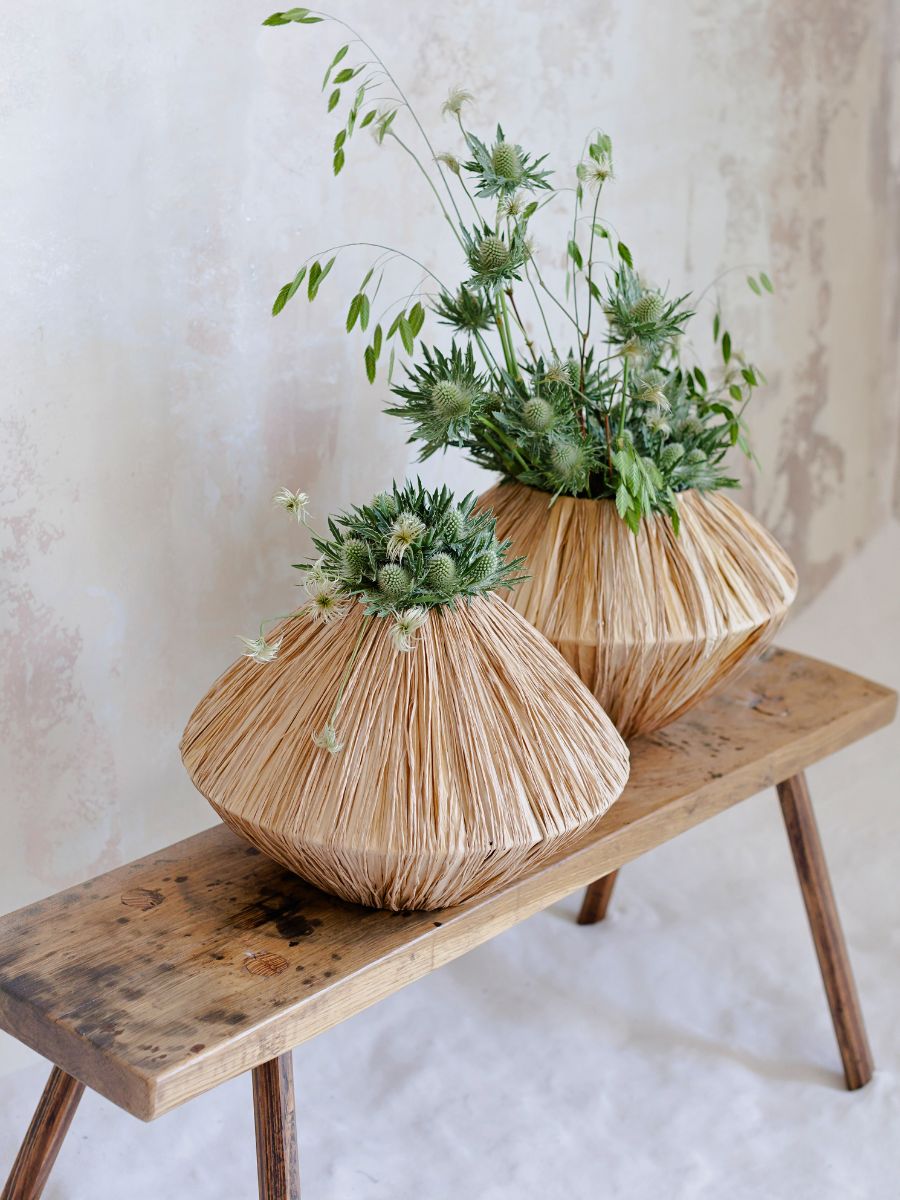
Sculptural Dynamics: In this design, a teardrop-shaped black vase holds an asymmetrical structure leaning to one side, creating a floating effect. Eryngium Scorpius Questar®, Eryngium Magnetar Questar®, and Eryngium Orion Questar®S pair with Scabiosa Bon Bon Scoop™ Maraschino placed in the center – a combination resembling a rare crystal formation. The unusual shape – a study in balance of form – presented a challenge, requiring pre-formed structures made from sisal or dried materials fixed to fine mesh, then secured inside the vase. Eryngium heads are then attached.
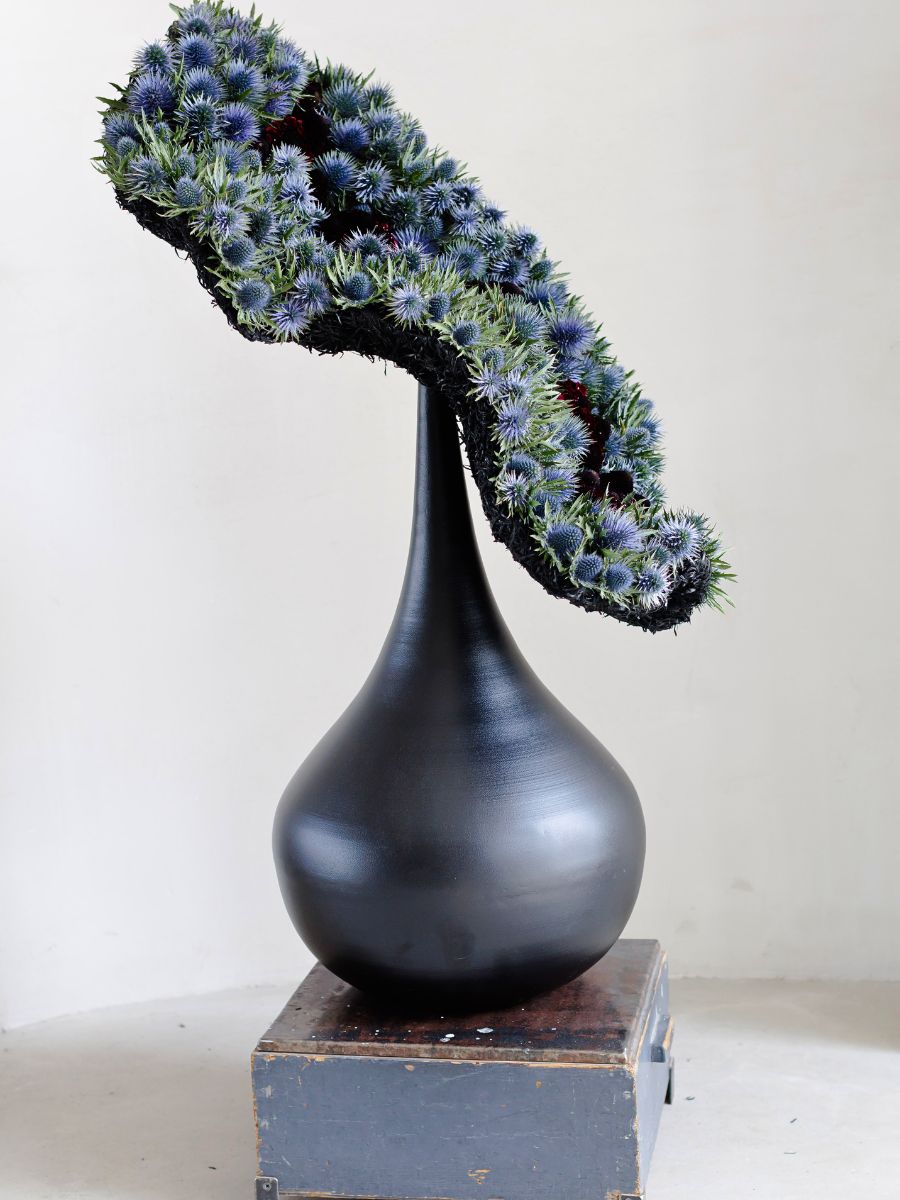
Tension Meets Lightness: A grey-turquoise planter, matching the silvery tone of the Eryngiums, contrasts a compact base with loose, airy structures of sticks, wires, and raffia, closed with Eryngium and highlighted with Gloriosa Superba Simba Fifty Shades. Dried materials used are stabilized with structural wires that can be bound together as needed, supporting the composition without adding visual weight.
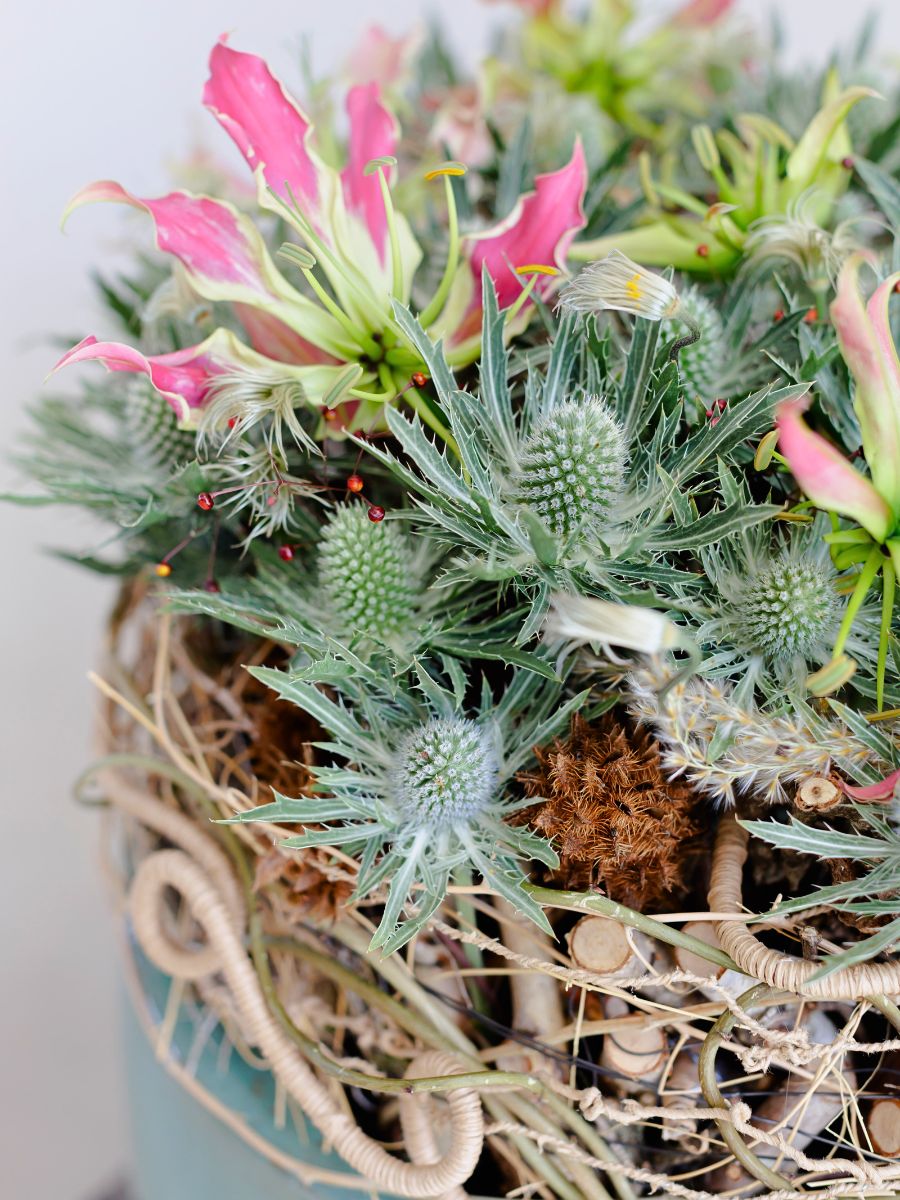
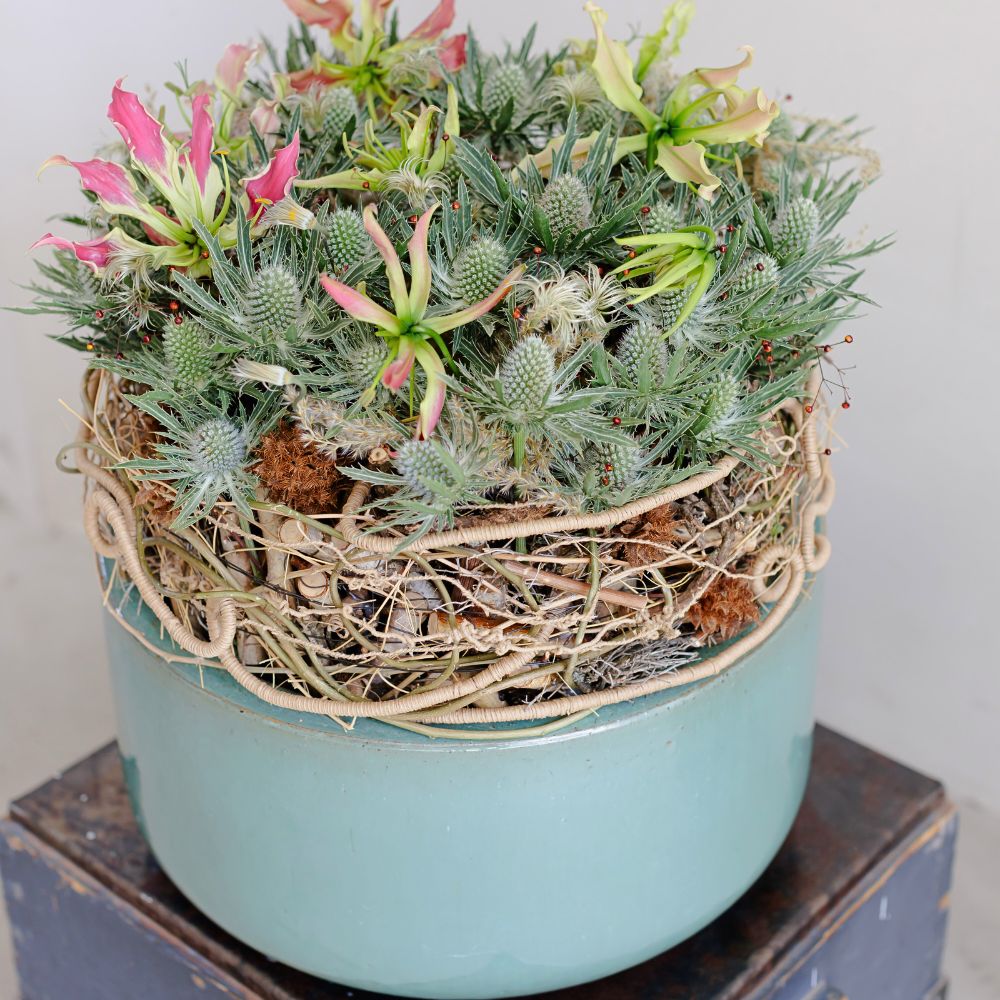
Spiky Heart: This design features a wire frame covered with wood slices, then layered with Eryngium heads at varying heights, creating a dimensional shape. White Eryngiums – a mix of Eryngium Sirius Questar®, Eryngium Artemis Questar®, and Eryngium Gemini Questar® – are used in varying heights, adding depth and visual interest.
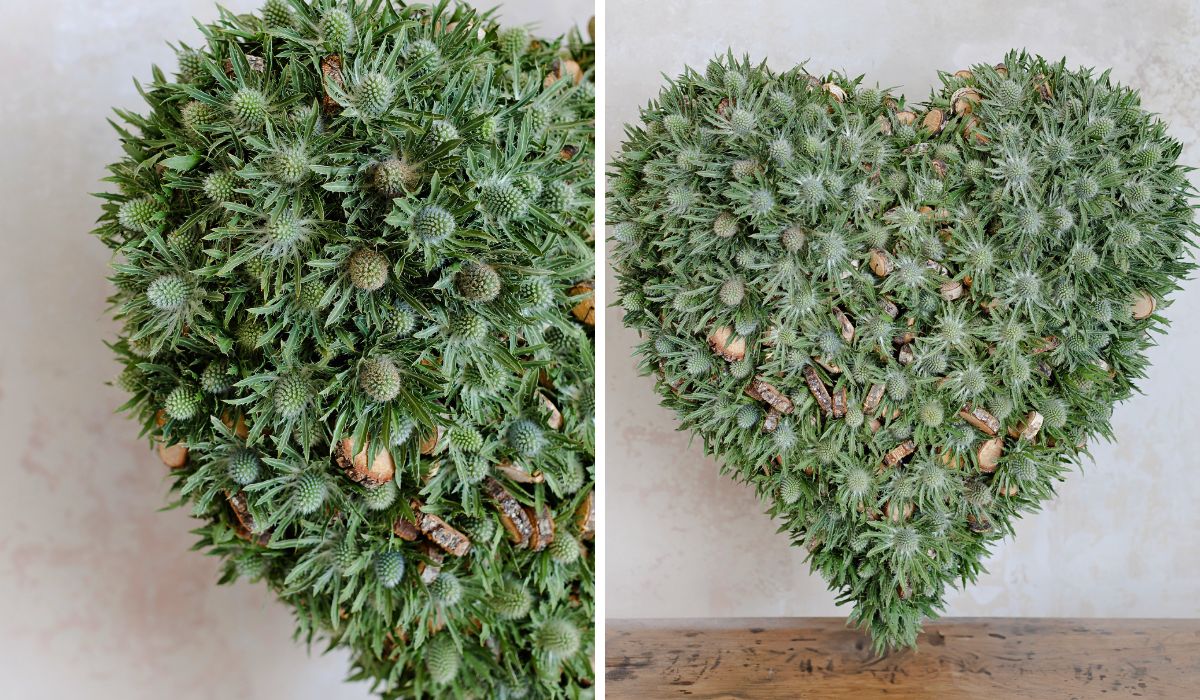
Breeze: In this design, dynamically placed Panicum Heavy Metal surrounds Eryngiums in the center, creating effects both graphic and organic, as if the lines are suspended in the air. Krisztián used a thin wooden board with pre-drilled holes to hold the stems, with hot glue for stabilization. String beads and wooden balls on wire add detail without weight, maintaining the visual airiness.
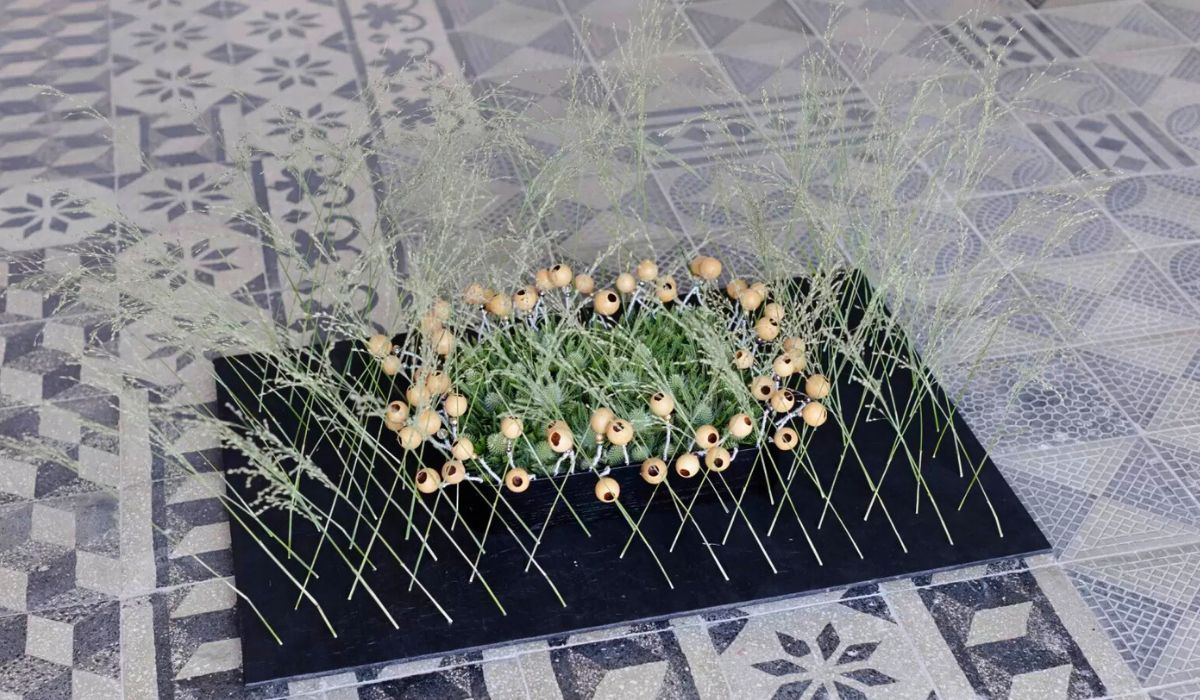
The Power of Texture: A mirrored lamp base holds a cylinder densely covered with Eryngiums like a floral lampshade. The contrast between a smooth, reflective surface and wild, spiky texture creates striking tension that draws the eye. Eryngium Scorpius Questar®, Eryngium Perseus Questar®, Eryngium Magnetar Questar®, and Eryngium Orion Questar® are used to create a mix of colors and textures. Clematis Amazing® Kibo adds variation. Krisztián used a large cylindrical form – up-cycled lampshade works well – gluing the flower heads, overlapping slightly for an even look.
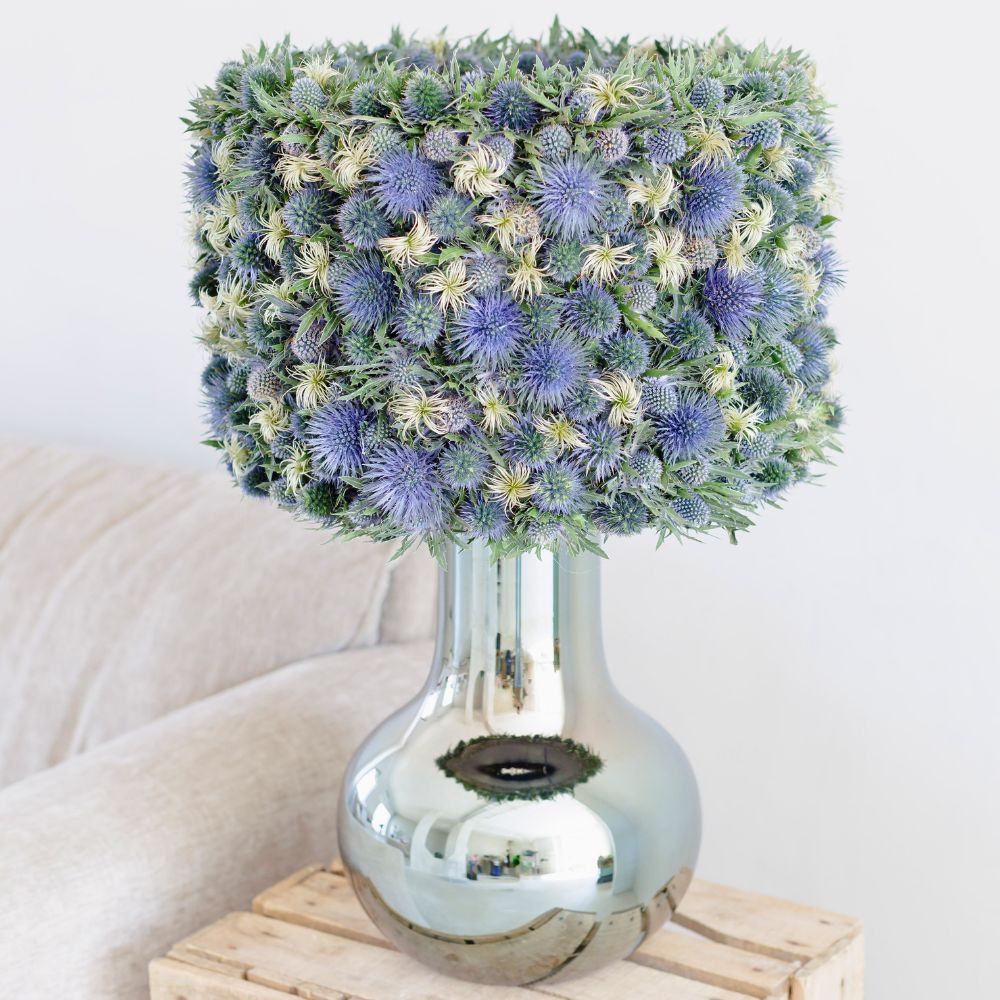
What It All Meant for Krisztián Kövér
This series, he says, was an experiment of how far a single dominant flower can be pushed visually and technically. When the material is fixed, artistic freedom comes through structure and rhythm. For him, few flowers possess such a distinctive structure and visual command as Eryngium. Its texture, longevity, and wide range of tones make it ideal for classic compositions and unique, contemporary installations.
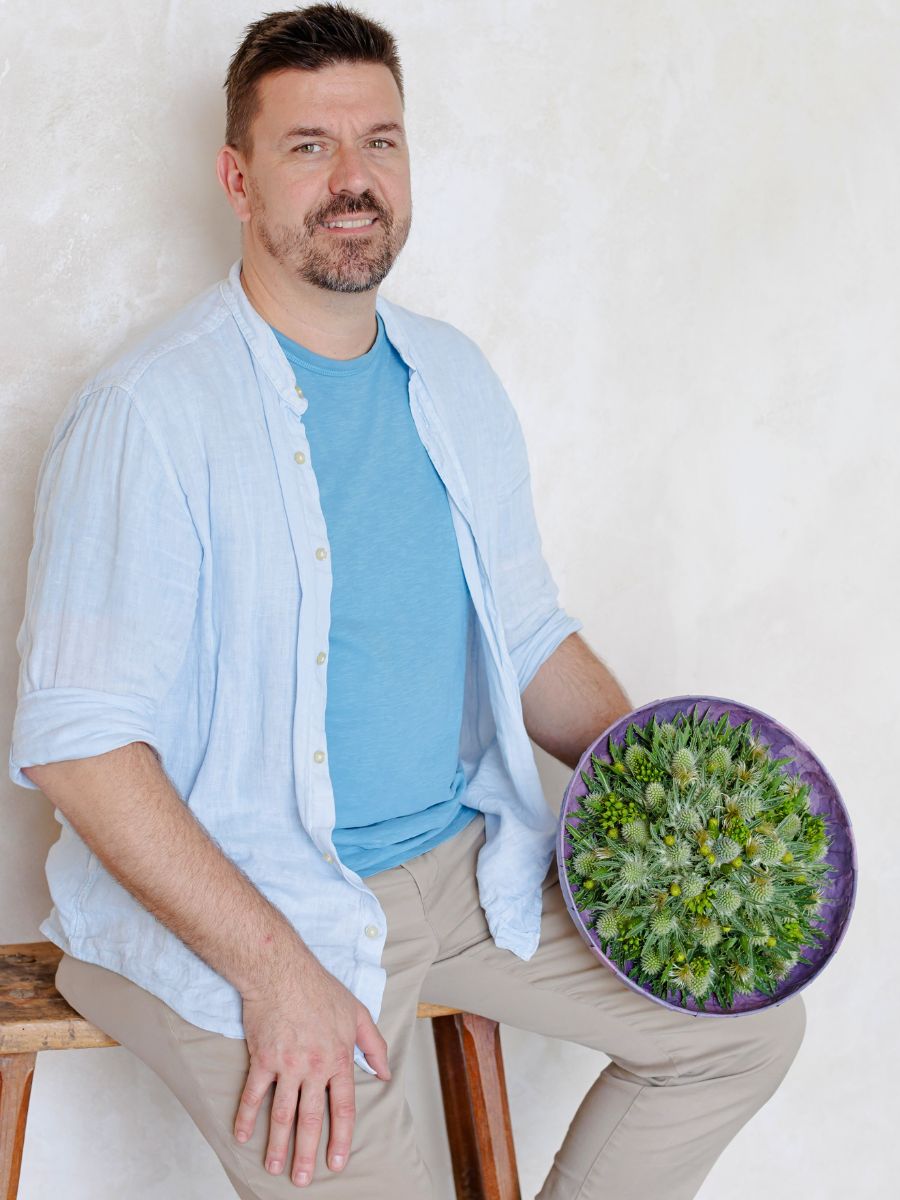
His final tip:
"Dare to repeat, simplify, or go bold. Structure is not a limitation, it's a tool."
Floral designs by Krisztián Kövér. Photography by András Rabloczky for Marginpar.


